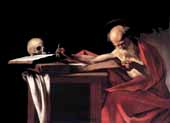
複数化するエスノグラフィー
マヤの文化・歴史・アイデンティティーズの比較と表象
John M.Watanabe and Edward F. Fischer, eds, Pluralizing Ethnography:
Comparison and Representation in Maya Cultures, Histories, and
Identities. SAR Press. 2004. 368 pp
Table of Contents
1. Introduction: Emergent Anthropologies and Pluricultural Ethnography
in Two Postcolonial Nations. by John M. Watanabe and Edward F. Fischer
2. Culture History in National Contexts: Nineteenth-Century Maya Under
Mexican and Guatemalan Rule. by John M. Watanabe
3. Linguistic Continuities and Discontinuities in the Maya Area,. by
Victoria R. Bricker
4. The Summer Institute of Linguistics and the Politics of Bible
Translation in Mexico: Convergence, Appropriation, and Consequence. by
Christine A. Kray
5. "Everything Has Begun to Change": Appraisals of the Mexican State in
Chiapas Maya Discourse, 1980-2000. by Gary H. Gossen
6. Beyond Resistance and Protest: Maya Quest for Autonomy in Mexico. by
June Nash
7. Rereading Tzotzil Ethnography: Recent Scholarship from Chiapas,
Mexico. by an Rus
8. Angering the Ancestors: Transnationalism and Economic Transformation
of Maya Communities in Western Guatemala. by Victor Montejo
9. The Janus Face of Globalization: Economic Production and Cultural
Reproduction in Highland Guatemala. by Edward F. Fischer
10. Continuities, Imputed and Inferred. by Richard G. Fox
Culture Theory and Cross-Cultural Comparison: Maya Culture and History
in a Multicultural World Advanced Seminar, October 22-26, 2000 の記録
Cited from:
https://sarweb.org/?sar_press_pluralizing_ethnography-p:sar_press_advanced_seminar_series
Robert Redfield and the Development of American Anthropology(2nd ed.),
by Clifford Wilcox. Lexington Books, 2006.
"Relying upon close readings of virtually all of his published and
unpublished writings as well as extensive interviews with former
colleagues and students,Robert Redfield and the Development of American
Anthropology traces the development of Robert Redfield's ideas
regarding social change and the role of social science in American
society. Clifford Wilcox's exploration of Redfield's pioneering efforts
to develop an empirically based model of the transformation of village
societies into towns and cities is intended to recapture the questions
that drove early development of modernization theory. Reconsideration
of these debates will enrich contemporary thinking regarding the
history of American anthropology and international development."
"Wilcox has written a subtle and comprehensive critical study of one of
the most important figures in American anthropology. Anyone interested
in the rise of comparative civilization studies and its relation to
modernization theory in the mid-twentieth century must read this book.
-- Richard Candida Smith, University of California, Berkeley Clifford
Wilcox has done a great service by writing this intellectual biography
of Robert Redfield, whose influence in directing American anthropology
toward the study of civilizations and their local expressions has been
immense. Now that the idea of civilization is again under scrutiny and
contention, nothing could be more timely than this book. Wilcox gives
us a perceptive account of Redfield just when we need to rediscover
him. -- Thomas R. Trautmann, University of Michigan Robert Redfield and
the Development of American Anthropology is a carefully researched,
authoritatively narrated study of the intellectual life and impact of
one of U.S. anthropology's most important figures during the first half
of the 20th century. It is an excellent contribution to the history of
anthropology. American Anthropologist Wilcox's meticulous scholarship
is an important contribution to anthropological theory... all those who
read Wilcox's book will learn a great deal about a major figure in the
history of American anthropology. Journal Of The Royal Anthropological
Institute Clifford Wilcox has written a crucial book on a crucial
figure in the development of American social science. Robert Redfield
emerges in this account as the key figure of the second Chicago School,
a pathbreaking enterprise knitting together Robert Park's tradition of
urban sociology with an anthropology of social change and the
humanistic study of civilizations to address the great questions of
development and modernization in the mid twentieth century. Wilcox
builds on meticulous research and exquisite judgment to bring before us
a vivid sense of Redfield's achievement, very much worth remembering as
we confront the dilemmas of development and culture anew in the
twenty-first century. -- Howard Brick, Washington University in St.
Louis "
cited from Amazon.co.jp